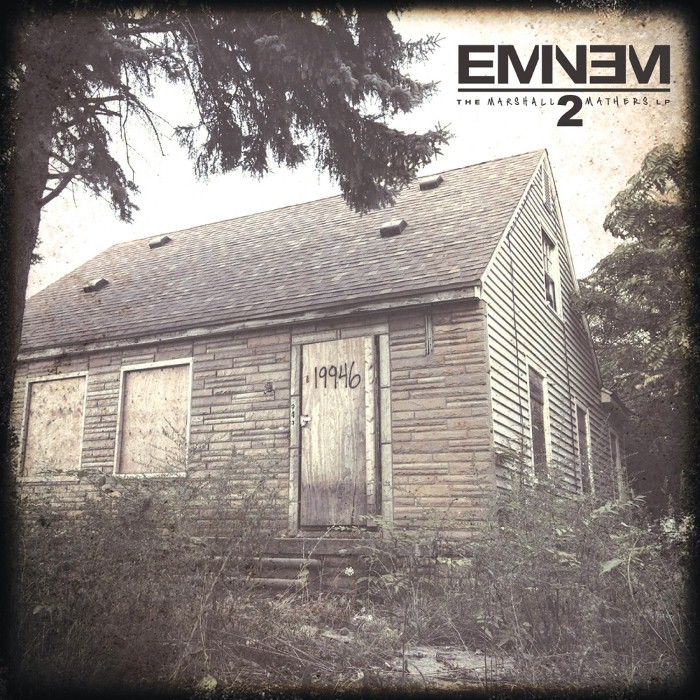The Marshall Mathers LP 2 by Eminem

The Marshall Mathers LP 2 is the eighth studio album by American rapper Eminem, released on November 5, 2013, by Aftermath Entertainment, Shady Records, and Interscope Records. A continuation of Eminem's most acclaimed studio effort, 2000's The Marshall Mathers LP, production for the album took place from 2012 to 2013 and was handled by Eminem and other record producers, including Rick Rubin, Luis Resto, Emile Haynie, and Alex da Kid. The album features guest appearances from singers Skylar Grey, Rihanna, and Fun frontman Nate Ruess, with the only other rapper appearing on the album being Eminem's Aftermath label-mate Kendrick Lamar. The album title was revealed during the 2013 MTV Video Music Awards on August 25 with a preview of the lead single "Berzerk", released two days later in the U.S., peaking at number three on the Billboard Hot 100. It was followed by two singles: "Survival", released on October 8, and "Rap God", released on October 15, 2013. The former debuted at number 17 on the Hot 100, and the latter at number seven. "The Monster", featuring Rihanna, was released as the album's fourth single on October 29, 2013. The album received generally positive reviews from music critics, with praise going to Eminem's technical rapping skill and production choices. It marked an improvement in reception over some of his more recent albums, and was named on multiple "Albums of the Year" year-end lists. The album debuted at number one on the Billboard 200 and had the second highest album sales of 2013.
When Eminem put out the sequel to <i>The Marshall Mathers LP</i> in late 2013, he joined a small handful of rappers—including JAY-Z, Q-Tip and the late MF DOOM—who’d managed to still sound relevant after hitting 40. Age hadn’t matured him—at least not so much that he backed off the violence, misogyny and homophobia that made him a lightning rod 15 years earlier. But on <i>The Marshall Mathers LP 2</i>, there was a sense of awareness about his place in the culture that could be interpreted as maturity. He wasn’t a dark, twisted rapper; he was the dark, twisted rap <i>guy</i>: That was his role. So while the album’s shout-outs to Phife Dawg (“Legacy”)—as well as the old-school feel of tracks like “Berzerk” and “Survival”—could be described as nostalgia, they’re also Eminem’s way of saying that, no matter how good he is, he knows he’s just a piece in a much bigger cultural picture. By the time <i>The Marshall Mathers LP 2</i> arrived, the tabloids and headlines that once followed Eminem were mostly gone. It was just him, his notebook, his memories and a love for the music that made him. “They said I rap like a robot, so call me Rap-bot,” he proclaims at the top of “Rap God”, before offering five and a half of the most technically demanding minutes of his career. That’s the feat, but that’s also the joke—watch him go. Same, in a way, for something like “Legacy”, which listeners might realise squeezes five minutes of rhymes out of the same few syllables. In an interview with Eminem, conducted a few years after <i>The Marshall Mathers LP 2</i>‘s release, a <i>New York</i> magazine writer asked the rapper what he liked to do for fun. “Aside from writing? Mostly I love writing,” he said. “Yeah, writing is something I really enjoy.” It’s hard to tell whether or not he’s kidding, but on <i>LP 2</i>, the picture still comes through clear: Here’s a guy so consumed by rap that the rest of the world basically doesn’t exist.
